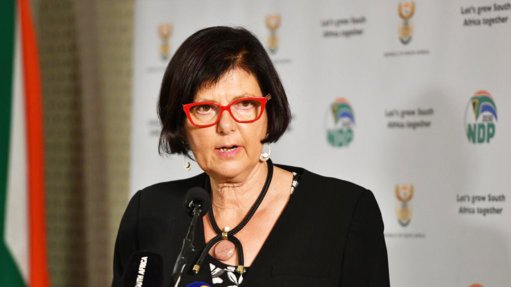
Forestry, Fisheries and Environment Minister Barbara Creecy
In an address to delegates of the G20 Environment and Climate Sustainability Ministers Meeting, in India, on July 28, Forestry, Fisheries and the Environment Minister Barbara Creecy said ambitious targets to preserve the planet were meaningless unless they are backed with enabling means of implementation for developing countries.
She referred to the international community adopting the landmark Kunming Montreal Global Biodiversity Framework in December last year as an example, noting that the framework contains a key ambition to preserve biodiversity, ecosystems and human life.
Creecy added that 17 of the major biodiverse countries in the world are developing countries. She emphasised further that developed countries need to assist with securing at-scale, predictable and appropriate funding streams for developing countries’ efforts to conserve and protect biodiversity.
Particularly, she said, the G20 countries can work together to protect biological diversity.
In South Africa’s case, mega-diversity is both a natural and cultural asset, as well as a source of socioeconomic development through the use of plants, marine living organisms and wildlife, which the South African government has vowed to protect in the White Paper on the Sustainable Use of South Africa’s Biological Diversity.
The policy document outlines four strategic goals of conversation, sustainable use, equitable sharing of benefits and transformation. “We regard this White Paper as our own strategy to implement the Kunming Montreal framework,” Creecy said.
She highlighted that land degradation, biodiversity loss and climate change were interlinked global environmental problems and that 2030 was a significant milestone for achieving Land Degradation Neutrality, as one of the Sustainable Development Goals of the United Nations.
Therefore, she welcomed ongoing discussions under the Indian Presidency and the G20 global initiative on reducing land degradation and enhancing conservation of terrestrial habitats.